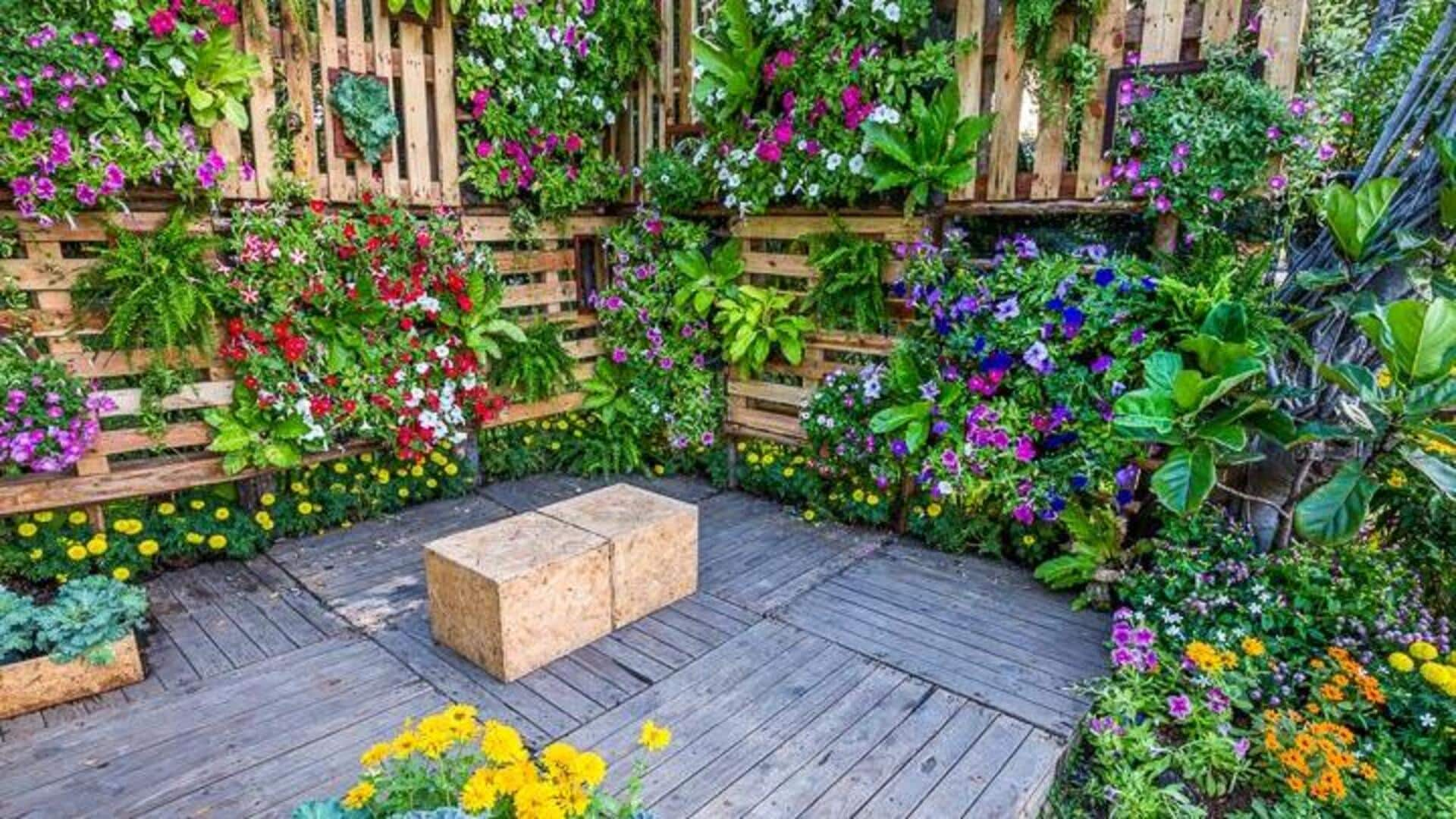
Tips to build economical DIY vertical gardens in Africa
What's the story
Vertical gardens are an excellent solution for introducing greenery into urban residences and communities, particularly in crowded African cities where ground space is scarce.
Not only do they beautify a place but also purify the air and decrease heat.
This article details how you can build your own low-cost vertical garden using everyday items.
Recycling
Utilize recycled containers
One of the cheapest ways to start a vertical garden is by using recycled containers.
Plastic bottles, cans, or old wooden crates can often be obtained for free and, with a bit of creativity, make beautiful plant holders.
Just drill some holes for drainage, fill them up with soil, and you're ready to plant.
Local flora
Choose local plant varieties
Choosing local plant varieties can cut the cost of establishing your vertical garden by more than half.
Native plants are accustomed to the local climate and soil conditions, so they need less water and fertilizer compared to foreign ones.
You can visit local nurseries or community gardens to get cuttings or seeds for free or at a minimal cost.
Watering solution
DIY drip irrigation system
Watering a vertical garden can be a hassle, but a DIY drip irrigation system made from a recycled hose or PVC pipes can be a game-changer, conserving both water and your precious time.
By delivering water directly to the root zone of your plants via slow drips, this system eliminates waste and maximizes efficiency.
Say goodbye to costly watering systems!
Organic fertilizer
Use compost for fertilizer
Don't waste money on store-bought fertilizers; create your own nutrient-rich compost using kitchen scraps and yard waste.
This not only minimizes waste but also nourishes your plants with the essential nutrients required for optimal growth.
Composting bins can be easily constructed from old containers or wooden pallets, making this a cost-effective way to enhance your garden's health.
Community engagement
Engage community support
Interacting with your community opens up a world of resources like shared tools, knowledge exchange, and even plant swapping, cutting costs even further.
Community workshops or gardening clubs offer opportunities to learn new skills and get advice specific to gardening in Africa's diverse climates - no need to shell out for professional consultations!